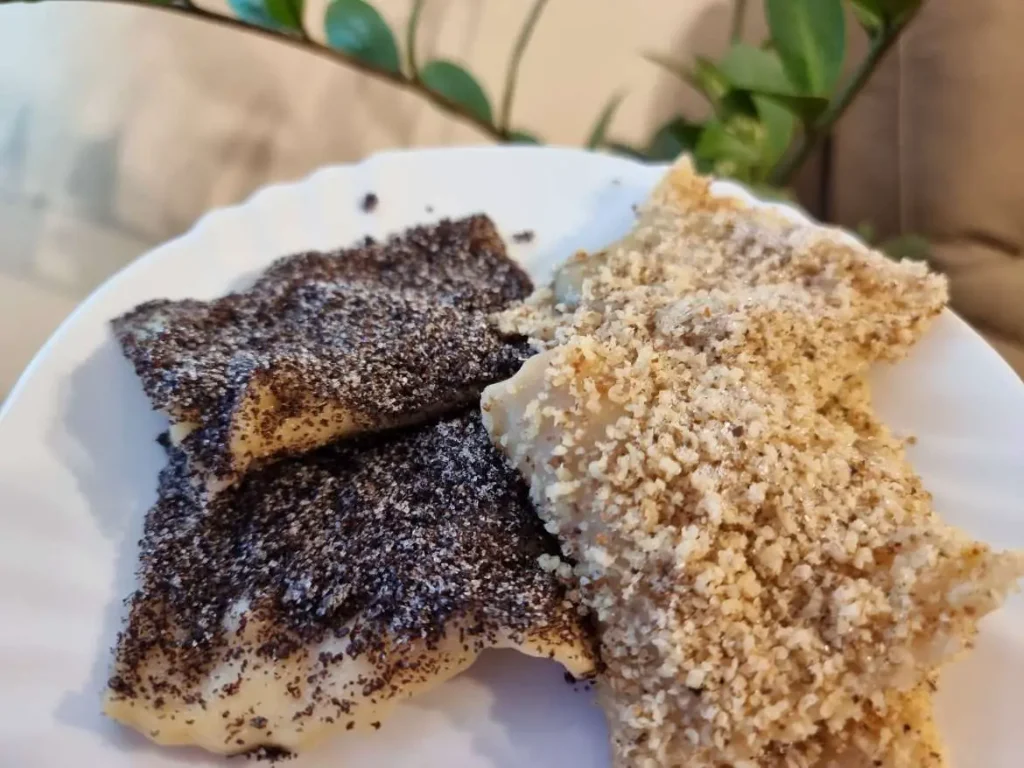April 7, 2023 – It is Good Friday. In Croatia, that could mean a few things. If you are religious, you are likely to go to church and follow the Way of the Cross (beautiful traditions tied to that, for example, Za Križen in Hvar), you might be fasting, or you just might be realizing that Easter is only two days away. YouZa Križen in Hvar), you might be fasting, or you just might be realizing that Easter is only two days away, and you need to get started on your food prep. If you live in Slavonia and have a grandmother, you are more than likely to be served tašci, also known as taške, also known as tačkrle, also known as “don’t bother preparing them if you’re not making a hundred.”
Following the Catholic tradition, most households in Croatia will be fasting or at least staying away from meat on Good Friday. Having moved away from the religious rigidity, what ends up happening on days like that (another prime example being Christmas Eve), is that the finest fish meals end up being prepared, along with desserts, to make it a little bit more special. And you end up a long way from fasting. For that purpose, as we said, none is better than the traditional little pockets of happiness that are taške. They taste the best if made by grandmas or at least mothers, but all versions are more than good enough. Though the recipe is simple, the preparation is quite labor intensive and does take a little bit of time, so make sure to account for that.
Taške is a simple dough filled with jam, cooked and rolled in poppy seeds or ground walnuts. Enjoyed by the dozen. They originate from Slavonija and Baranja but are also popular in parts of Hungary and Serbia. The dough can be just flour and water or a potato dough like gnocchi. It would always be the simplest version in my family, so that is the recipe I’ll share today.
Dough
– flour
– water
– salt
– optional: egg
Filling
– jam
Toppings
– ground walnuts + sugar
– toasted poppy seeds + sugar
* The traditional filling is a special type of plum jam, which is just plums and a little sugar cooked for hours in the oven – once it cools in the jars, it hardens and becomes perfect for fillings as it doesn’t leak out during cooking.
Preparation
1 Knead your dough with a pinch of salt and enough water to bind it together. Add one egg for extra elasticity and flavour, but feel free to skip. The consistency should be hard but uniform. There are no exact measurements; you’ll use more or less flour depending on how many people you’re trying to feed (about 1 kg used for a family of 6 with plenty of leftovers).
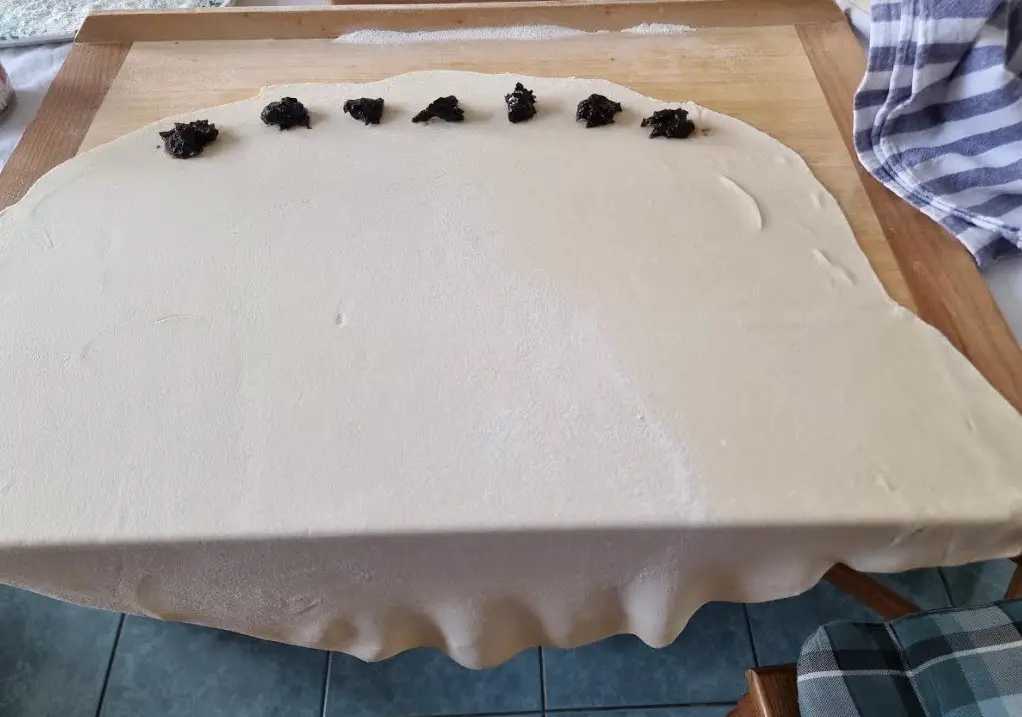
2 Dusting it with flour, roll out the dough into thin sheets (about 2-3 mm thick), fill with jam, folding it over row by row. Tip: glue it together using a little water between the individual taške.
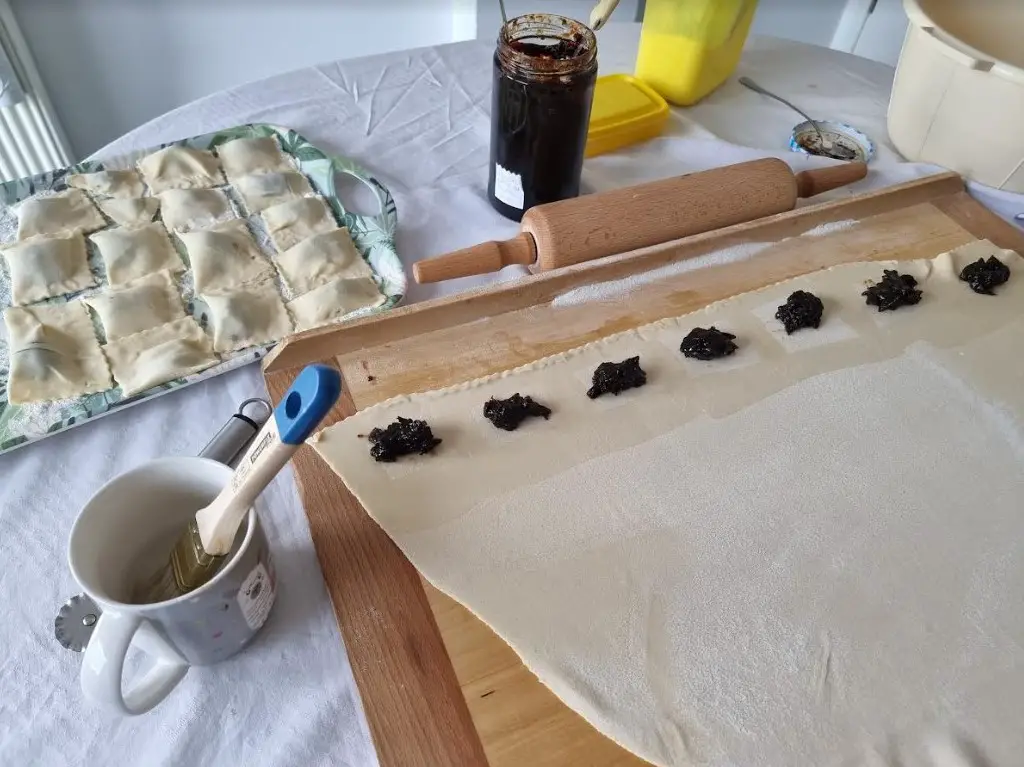
3 Cut into squares, pinching the ends together so your filling stays in place during cooking. During the process, keep your prepared taške separate so they don’t stick together (flour your trays and use baking paper between layers).
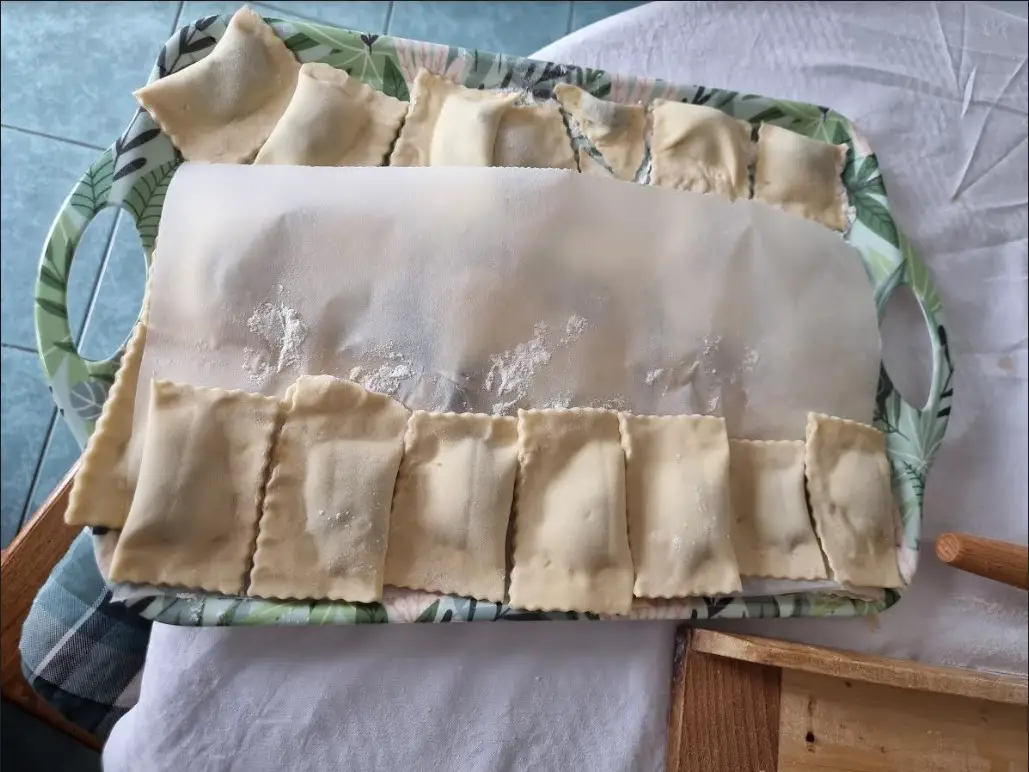
4 Bring your biggest pot of water with a pinch of salt to boil. Taške should be cooked in small bunches, about six at a time, but if (like me) you’re trying to cook about 90 of them, feel free to dump as many as you can comfortably fit into the pot. They are cooked in rapidly boiling water very briefly, for a minute or two after they’ve risen to the surface.
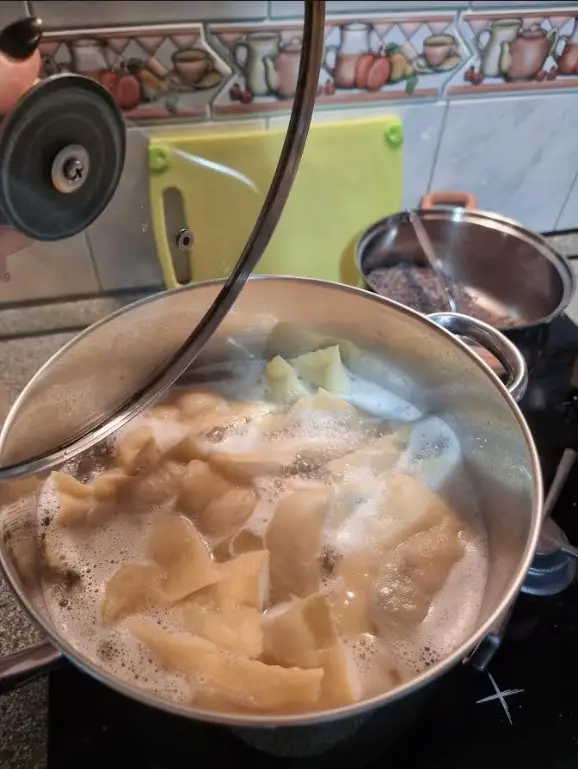
5 Take them out and let cool for a few minutes, after which you can layer them into glass or ceramic dishes with their toppings – ground walnuts with a bit of sugar or toasted poppy seeds with sugar.
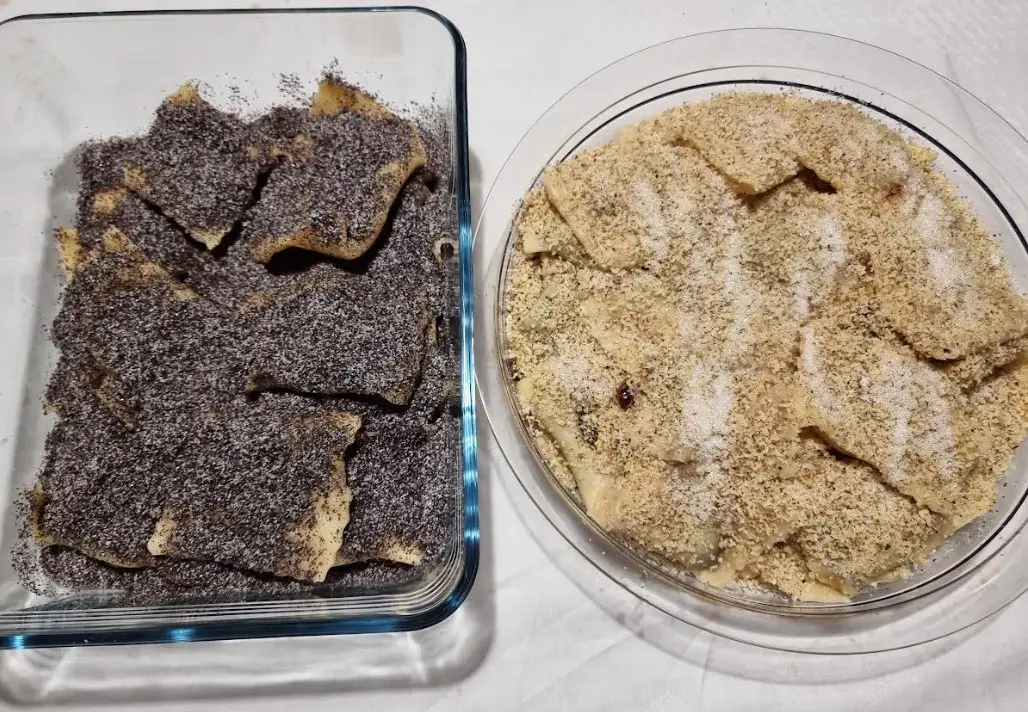
Taške are best eaten warm, following a nice fish dinner.
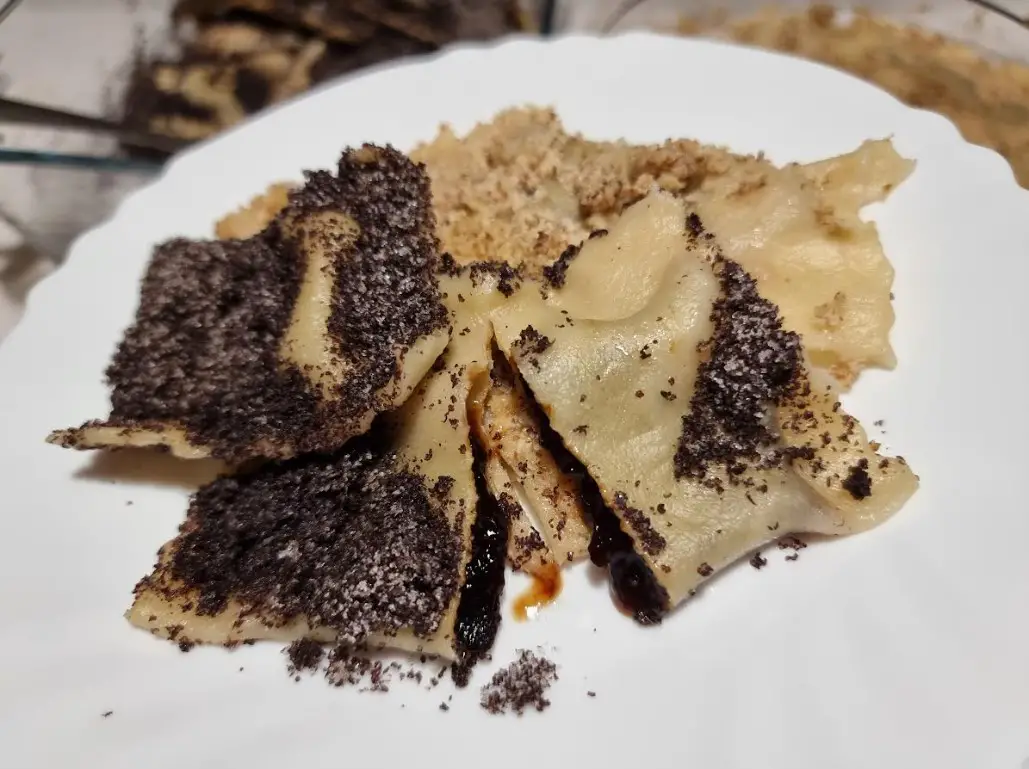
For more, make sure to check out our dedicated Lifestyle section.

